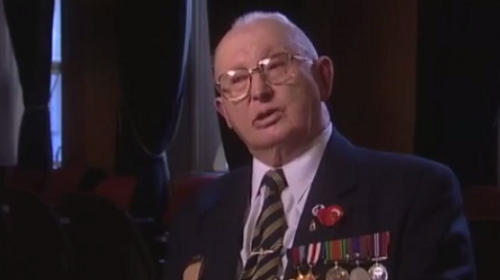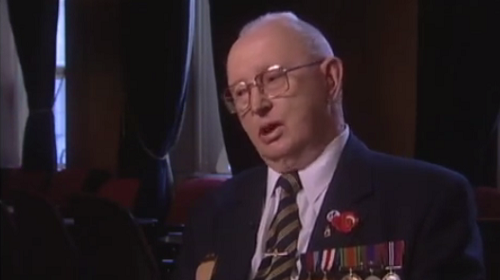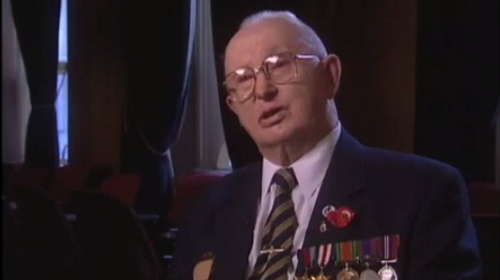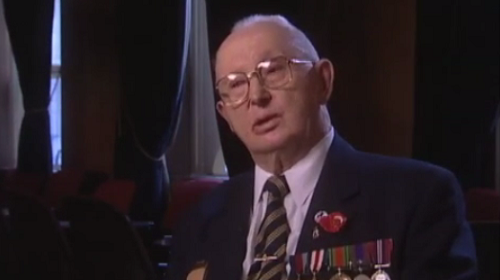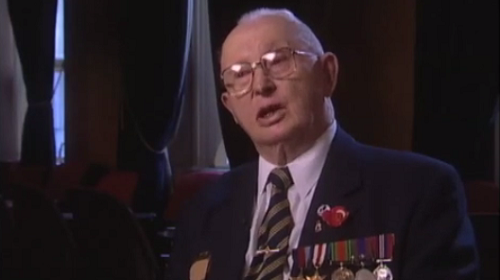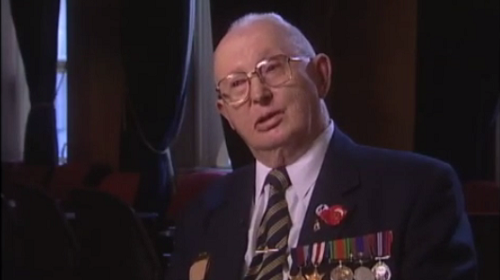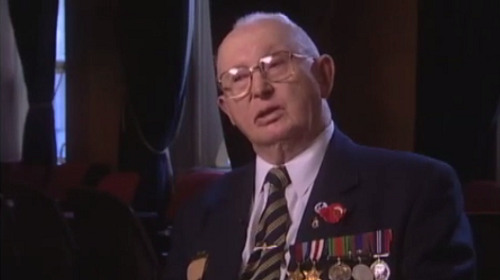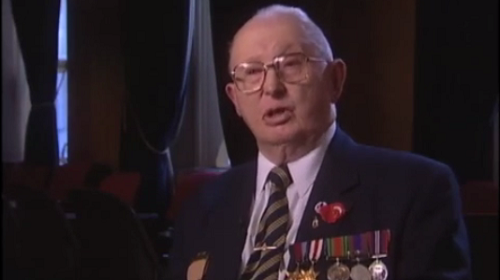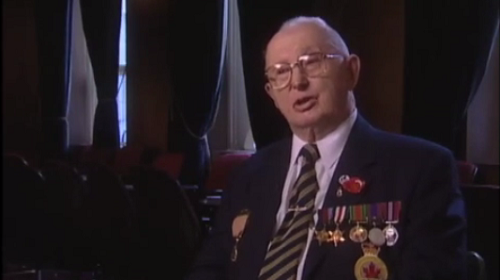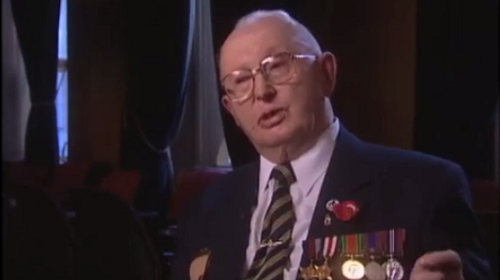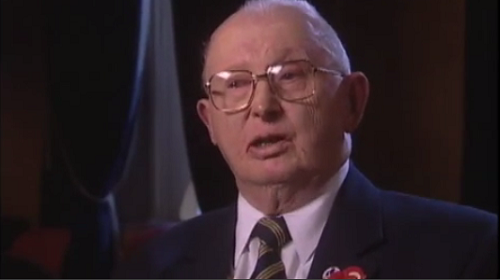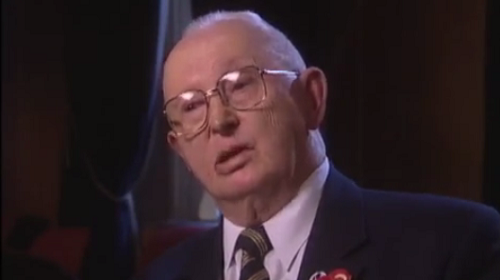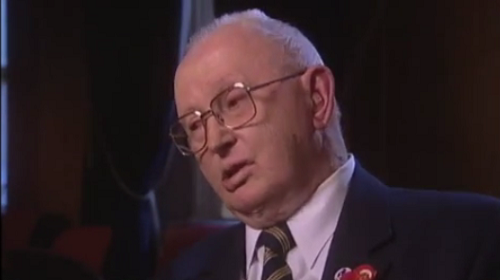I mean, we did our share, but everybody's a hero, everyone. The
ones that are dead are the heroes. They're the ones that's got
nothing. We rode on their backs. We came back and we
enjoyed... Half of my friends, I don't even know them anymore
now but the ones that died, they could have had the same thing
I got, nice family and grandchildren. They got nothing. And
some of them had families and they don't know their parents.
Well... that goes for all the Americans and Canadians. If
we'd lost the war to Japan or to Germany, we'd have never
enjoyed what we got today. None of us. And the ones that were
fighting would have been all massacred I guess for fighting
them. You know, they would want their revenge somehow. I mean,
it's a different ball game now. It's hard to make people think
but at that time people... you know, when you're fighting with
people, adrenalin goes out of whack. There was a general, Kurt
Meyers, and his group captured a few of our guys and he
massacred them, shot them right there. Well, that gives you a
funny feeling that you're not going to be friendly either. You
know I'm sure that lots of people took revenge because it's
‘tit for tat.' You know, what are you going to do
with these prisoners when you're moving ahead, they could turn
around and do something to you so something has to be done. You
have some guys take some back and sometimes you never know what
happens to some of them. It's a sad, it's sadistic, you get
sadistic, it gets very sadistic. You want to get revenge
for your friends, your thing and they don't play the game so
there's no rules. Well, the air force did a good job for us,
and the navy. The air force, if they hadn't bombarded the...
there was thousands of planes and we got caught like I said a
little while ago, under one of their attacks. If it wasn't for
them we would have never got into... on our side anyway, because
we were right into... well, kind of a hilly part of the country
and these guys, we had to climb up to get in and they were just
waiting for everybody. Some of the Americans had long beaches,
they can travel but they were wide open too, because there was
always mines and stuff like that but it was the air force that
did a good job. And the paratroopers that landed behind, they
got massacred. Before they even come down they were shot right
in the air like pigeons. You can't do nothing when you're
coming down. And then they'd get caught in the trees and stuff,
and they couldn't get away from it either. At least with our
tanks you could..., well, if you got hit, you got hit good. And
then we tried to avoid sleeping under them because if you're out
in the field the tank would sink and it'd crush lots of people
sleeping under tanks. There was so much ammunition you could
take. In about two hours you'd run out of everything. Same
with fuel and then you got to wait for people to come up and
help you to get you going again. And when you're way up in
front, well you have to learn to conserve everything, your food,
everything because sometimes it would be three, four days and we
didn't know what was going on. I mean you don't converse. You
send messages, you don't talk about the weather, how things are
in England, or are we still here. Lots of times you thought
they didn't care what happened to you anyway ‘cause there was so
much confusion. You wonder how you can get together so many
thousands and thousands of people, vehicles, all trying to get
into... Eventually you end up finding your group in the mess, I
would say. It straightens itself out. Everybody's got a
story. Everyone, everyone... Some of them went through a lot.



